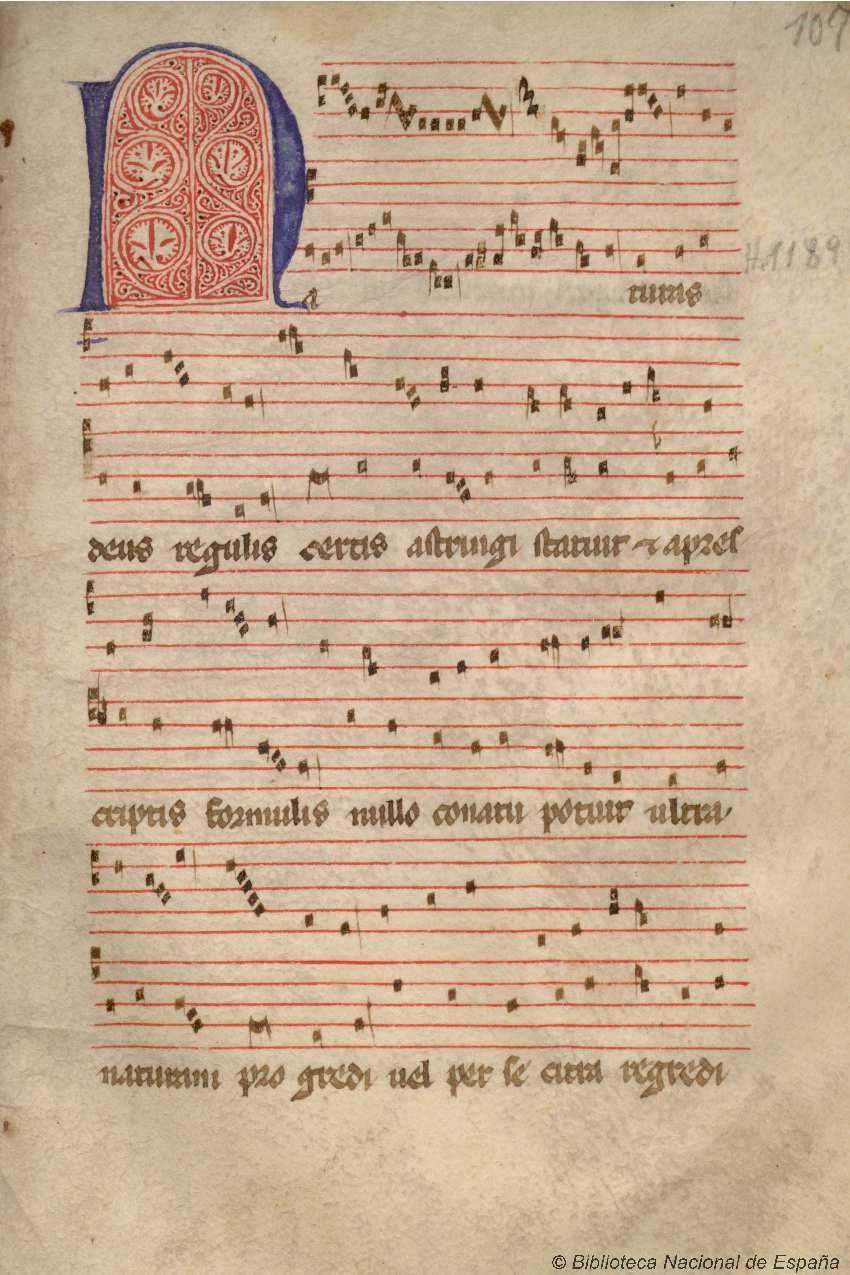
EGERIA, as part of its academic objectives, is partnering with the Centre Internacional de Interpretació d'Estudis de la Música Medieval de la Valldigna (CIIMM), to present the course Medieval Readings and Languages.
The course aims to provide a comprehensive approach to the different musical languages and resulting styles that developed in the Middle Ages, as a means of understanding the evolution and development of Western music.
We will study the historical context, the different treatises and we will discover how to decipher the original notations, through the main manuscripts, always with a methodology that is both theoretical and practical.
The course will be teached by Lucía Martín-Maestro Verbo, performer and researcher specialised in medieval music and, in addition, founder and artistic director of EGERIA.
EGERIA, as part of its academic objectives, is partnering with the Centre Internacional de Interpretació d'Estudis de la Música Medieval de la Valldigna (CIIMM), to present the course Medieval Readings and Languages.
The course aims to provide a comprehensive approach to the different musical languages and resulting styles that developed in the Middle Ages, as a means of understanding the evolution and development of Western music.
We will study the historical context, the different treatises and we will discover how to decipher the original notations, through the main manuscripts, always with a methodology that is both theoretical and practical.
The course will be teached by Lucía Martín-Maestro Verbo, performer and researcher specialised in medieval music and, in addition, founder and artistic director of EGERIA.
Cursos antiguos
EGERIA, as part of its academic objectives, is partnering with the Centre Internacional de Interpretació d'Estudis de la Música Medieval de la Valldigna (CIIMM), to present the course Medieval Readings and Languages.
The course aims to provide a comprehensive approach to the different musical languages and resulting styles that developed in the Middle Ages, as a means of understanding the evolution and development of Western music.
We will study the historical context, the different treatises and we will discover how to decipher the original notations, through the main manuscripts, always with a methodology that is both theoretical and practical.
The course will be teached by Lucía Martín-Maestro Verbo, performer and researcher specialised in medieval music and, in addition, founder and artistic director of EGERIA.
EGERIA, as part of its academic objectives, is partnering with the Centre Internacional de Interpretació d'Estudis de la Música Medieval de la Valldigna (CIIMM), to present the course Medieval Readings and Languages.
The course aims to provide a comprehensive approach to the different musical languages and resulting styles that developed in the Middle Ages, as a means of understanding the evolution and development of Western music.
We will study the historical context, the different treatises and we will discover how to decipher the original notations, through the main manuscripts, always with a methodology that is both theoretical and practical.
The course will be teached by Lucía Martín-Maestro Verbo, performer and researcher specialised in medieval music and, in addition, founder and artistic director of EGERIA.

EGERIA presents its III online course, Keys for the reading, transcription and interpretation of the manuscript, focused on the Codex Calixtinus.
Copied approximately between 1160 and 1170, the Codex Calixtinus is one of the most important musical relics preserved in Spain, and the Jacobean manuscript par excellence.
This course aims to provide the skills needed to discover and decipher this repertoire, always working from the manuscript itself in order to put it into musical practice.
Ideal for musicians with or without experience in the medieval repertoire, musicologists or music lovers with musical knowledge. It is essential to be able to read music with ease.
The teaching will be led by the performer and researcher Lucía Martín-Maestro Verbo, director and founder of EGERIA, a specialist in the medieval repertoire.

EGERIA presents its II online course, this time dedicated to the Initiation to the Interpretation of Medieval Music. Taking the voice as the main instrument, the aim is to provide students with the basic tools to face the enormous diversity of languages that were generated in this extensive period, from a completely practical approach.
The course will take place between January and April, and will consist of four units dealing respectively with the pre-Ars Antiqua, Ars Antiqua, Ars Nova and Ars Subtilior/School of Burgundy.
These four modules can be taken together or individually. The class dynamic will consist of two 4-hour group sessions per month, a personal tutorial and, in addition, there is also the possibility of receiving two individual sessions per month.
The enrolment modalities vary depending on the package chosen by the student.
The teaching will be carried out by the performer and researcher Lucía Martín-Maestro Verbo, director and founder of EGERIA, a specialist in medieval repertoire.



